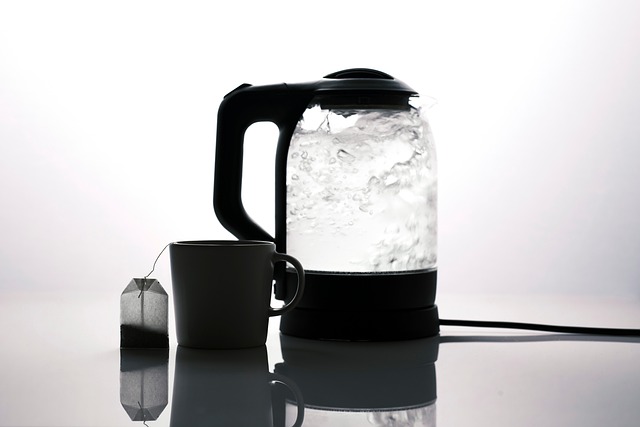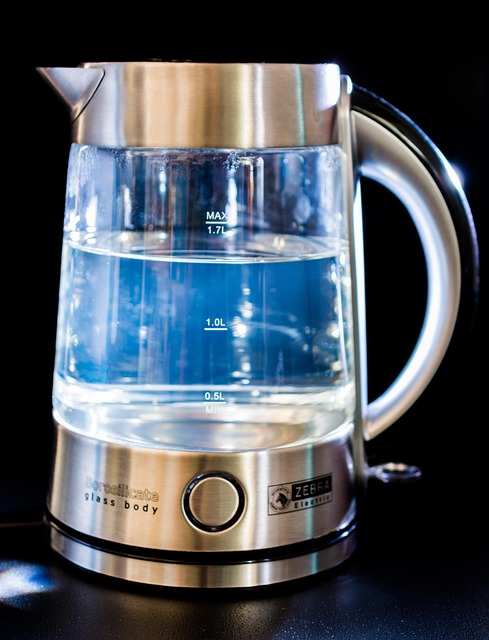Water heaters typically last 8-12 years (gas: 8-12 years, electric: 10-15 years), but signs like frequent pilot light issues, high energy bills, corrosion, or leaks indicate the need for a new heater. Electric heaters are more reliable and energy-efficient than gas heaters, with longer lifespans (10-15 years) despite initial lower costs. Regular maintenance extends life, but ultimate lifespan depends on age and performance. When replacing, consider energy-efficient models suitable for your needs, balancing cost, maintenance, and regional factors.
When it comes to choosing between gas and electric water heaters, durability is a key consideration. This article delves into the longevity of each type, exploring factors that influence their lifespan and offering insights on when it might be time for a replacement. We examine common issues with gas water heaters and the benefits of electric models, guiding you through the signs you need a new water heater to ensure efficient and reliable heating.
- Gas Water Heaters: Lifespan and Common Issues
- Electric Water Heaters: Longevity and Benefits
- Factors Influencing Water Heater Durability and When to Replace
Gas Water Heaters: Lifespan and Common Issues

Gas water heaters, while popular for their efficiency and quick heating times, have an average lifespan of 8-12 years. However, this can vary significantly based on factors like quality, usage, and maintenance. Common issues that signal it’s time for a new gas water heater include frequent pilot lights that constantly need relighting, high energy bills despite proper insulation, and signs of corrosion or leaks around the tank. If you notice any of these Signs You Need a New Water Heater, it’s advisable to consider replacing your gas water heater to ensure consistent hot water supply and avoid potential safety hazards associated with an old or malfunctioning unit.
Electric Water Heaters: Longevity and Benefits

Electric water heaters, while initially more affordable than their gas counterparts, are known for their longevity and reliability. On average, an electric water heater can last between 10 to 15 years with proper maintenance. This durability is attributed to the simplicity of their design and operation. Electric heaters have fewer moving parts, eliminating potential wear and tear points found in gas models. Furthermore, they don’t require regular ventilation or fuel source connections, reducing the risk of leaks and other maintenance issues.
Another advantage of electric water heaters is their energy efficiency. Unlike gas heaters that produce heat through combustion, electric models use electrical current to warm the water, making them more energy-efficient. This efficiency not only translates to lower utility bills but also contributes to a smaller carbon footprint. Moreover, when considering the signs you need a new water heater—such as inconsistent hot water supply, high energy bills, or strange noises—electric heaters often show fewer red flags, indicating a longer lifespan with proper care.
Factors Influencing Water Heater Durability and When to Replace

Several factors play a crucial role in determining the longevity of your water heater, beyond the initial gas vs. electric choice. Age is a primary indicator; as water heaters age, their parts may degrade or become inefficient, leading to increased energy consumption and potential safety hazards. Regular maintenance can extend their lifespan, but most tanks have an average life expectancy of 8-12 years.
Signs you need a new water heater include frequent repairs, rising energy bills, inconsistent hot water supply, and the presence of rust or leaks. When considering replacement, look for energy-efficient models that suit your needs. In terms of longevity, electric heaters tend to have slightly shorter lifespans than their gas counterparts due to constant heating elements, but they generally require less maintenance and can be more cost-effective in certain situations, especially in regions with lower gas prices or access to alternative energy sources.
When deciding between gas and electric water heaters, longevity is a key consideration. Electric models generally offer longer lifespans, often surpassing 15 years with proper care, while gas heaters typically range from 8 to 12 years. Despite potential energy cost savings with gas, electric heaters’ durability makes them a more sustainable investment in the long run. Knowing the signs you need a new water heater, such as inconsistent hot water or increased energy bills, can help ensure timely replacements for optimal comfort and efficiency.
